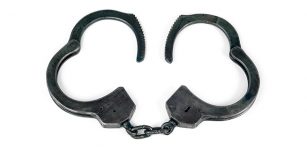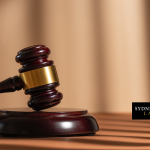What is My Eligibility for Bail in NSW?

The video and blog post below talks about how to make a successful bail application and eligibility for bail in NSW.
If you have been arrested for an offence that requires a later court appearance, you will generally be released on bail, which means that you will be allowed to go home after you have promised to attend court on your nominated date.
There may be additional conditions, including reporting to a police station on particular days of the week and lodging an amount of money.
If you don’t turn up for court when required, you will forfeit the sum of money, and you will also be liable for further penalties and legal proceedings.
How do police determine my eligibility for bail in NSW?
Eligibility for bail in NSW is generally determined by level of risk.
If you are considered to be likely to not show up for your court date, particularly if you have a history of not attending court, you may be refused bail.
If you have been charged with a firearms offence, or a violent offence, and you are considered to be a potential danger to the community, you are not likely to be considered eligible for bail.
Whether you are eligible for bail also depends on the nature of the offence you have been charged with.
Certain less serious offences come with a presumption in favour of bail, which means that unless there are any extenuating circumstances, you will be granted bail automatically.
Other offences have a presumption against bail, which means that you will have to convince the court to give you bail, or you will have to remain in remand until your court date.
There are a number of different offences that come with a presumption against bail – murder, certain firearm and drug offences, large-scale public disorder offences, and some property offences, if you have a history of other similar offences within the last two years.
If the police have refused to grant you bail after you are charged, you will appear before the court at the earliest possible time so you can request bail there.
How does the court determine eligibility for bail in NSW?
There are a large number of factors that the magistrate will take into consideration when deciding whether to grant you bail or not.
Some of these include whether it is in your best interests to be released on bail.
If you have dependents to support, and if you need time to prepare your case, this may be taken into consideration when the court decides your bail eligibility.
The safety of the community will also be taken into consideration.
If you have a history of violent offences, or if your charges are of a particularly serious or violent nature, you may be refused bail by the court.
If you are considered to be likely to try to interfere with witnesses or evidence while out on bail, you may also be refused.
The magistrate will also look at how likely it is that you will attend court.
If you have a previous history of not attending court, or of breaking the terms of previous bail agreements, you may find it more difficult to obtain bail this time around.
If you have been arrested and need to apply for bail, it is a good idea to speak to a lawyer as soon as possible.
An experienced criminal lawyer can argue your case for bail to the magistrate, and may be able to help you successfully apply for bail if police have refused you.






